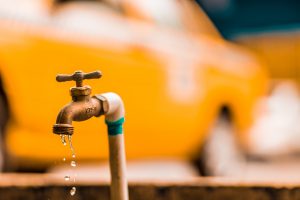With a blocked toilet or a blocked kitchen sink, along with it is one of life’s tests. Your garden or home is flooded with water or something worse raw sewage. The drainage pipes can become damaged or blocked by tree roots, toilet paper and other problems like items being flushed down the toilet.
When you have a blockage the first thing you need to do is get someone out to your home to fix the problem. It can’t just be anyone you need someone who knows what they are doing and who has the right equipment.
Who can unblock a drain?
A licensed drainer or plumber will need to attend to the problem there are some plumbers who only deal with blockages, so they have the expertise and experience to carry out unblocking the drains safe and easy. You will find there are different costs per experienced person you get so do some quotes first to see who is offering the best price.
How will they fix the problem?
Technology today is great, and plumbers have many different ways they can unblock drains, but they need to locate and identify the blockage first in order to know the best plan of action. Plumbers today have CCTV cameras also known as sewer drain cameras and they allow the plumber to see inside the pipes and find the location of the blockage.
Once the plumber has found the problem, he will use the best tools and methods for that type of blockage. A common tool most plumbers use is the electric eel. This is a long flexible steel rod that has cutters that protrude from the ends that will cut through things like tree roots and other blockages to make them smaller, so they are easier to get out.
There are however drawbacks to the electric eels and they can often damage pipes and the fact they only have a limited distance. Plumbers if need be will use a hydro-jet device that uses high pressured water to unblock the drain. These are safe and more effective than the standard reels and are becoming more and more used in the plumbing industry. If the tree roots in the drains have ended up damaging them, your pipes they may need to be replaced.
How are you going to be charged?
Some plumbers will charge a call-out fee which is added on to their hourly rate. The call-out fee normally sits around the $60 to $100 range but more on weekends or after hours. The hourly rates are between $100 and $150 but will depend on the plumber and where you live.
The price will depend on the skill level also if it is a massive blockage that requires higher skills then it will be more expensive than if they send out an apprentice just to fix a small leak.
It will vary from place to place but here a few prices:
- Toiler or kitchen sink unblock $80 to $120
- Clear a short stretch of blocked pipe $300 to $500
- Replace portions of your piping $1000 to $3000
- Replace the entire drain system $5000 to $20,000
All plumbers will let you know what needs to be done and the cost you are looking at before any work is carried out.
Now let’s talk a bit about green plumbing. Green plumbing refers to materials and appliances which are equally cost-friendly and environment friendly. With specialist plumbers all over the world, it’ll be easy to decide the best materials for your requirements.

Water pipes
Having great water pipes helps prevent water and waste flows. Additionally, it guarantees the right water pressure for unique needs. The usage of cross-linked polyethylene (or PEX) and steel are favoured as such help maintain the right temperature for water to go through. Plumbing made from PEX is also more flexible and will accommodate abrupt changes in water pressure.
Pipe insulators can also be added by construction contractors. These help decrease heat loss during winter months and saving costs for heating.
Toilets
Green Planet offers well-designed toilets that reduce your water intake. Environment-friendly bathrooms use less water in contrast to regular bathrooms. This can help save water use by around 60 per cent.
Faucets
Faucets are indispensable in bringing water into the household. Located mostly in the kitchen and toilet, faucets may also be the prime source of water wastage. Green Earth utilizes newer water taps that have a diminished pressure delivery method, and that prevents water from being wasted. These low-flow water systems help reduce water wastage and decrease energy costs. Obviously, people should also refrain from maintaining the water flowing unnecessarily so as to save costs.
Showers and showerheads
Showers and showerheads can significantly affect your water intake. This is because not all the water that emerges from these is really used. A green pipes option is to utilize newer showerheads with better functionality.
Low-flow water technologies can conserve water by around 20%. Most eco-friendly showerheads developed by green engineering companies in Australia utilise pressures which are only up to 1.75 gallons per minute versus that of routine showerheads that might add up to greater values. This helps save energy and water but does not necessarily compromise the operations of the shower.


